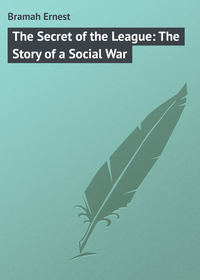Читать книгу: «The Secret of the League: The Story of a Social War», страница 19
Что-то пошло не так, попробуйте зайти позже
Покупайте книги и получайте бонусы в Литрес, Читай-городе и Буквоеде.
Участвовать в бонусной программеЖанры и теги
Возрастное ограничение:
12+Дата выхода на Литрес:
28 марта 2017Объем:
343 стр. 6 иллюстрацийПравообладатель:
Public Domain
